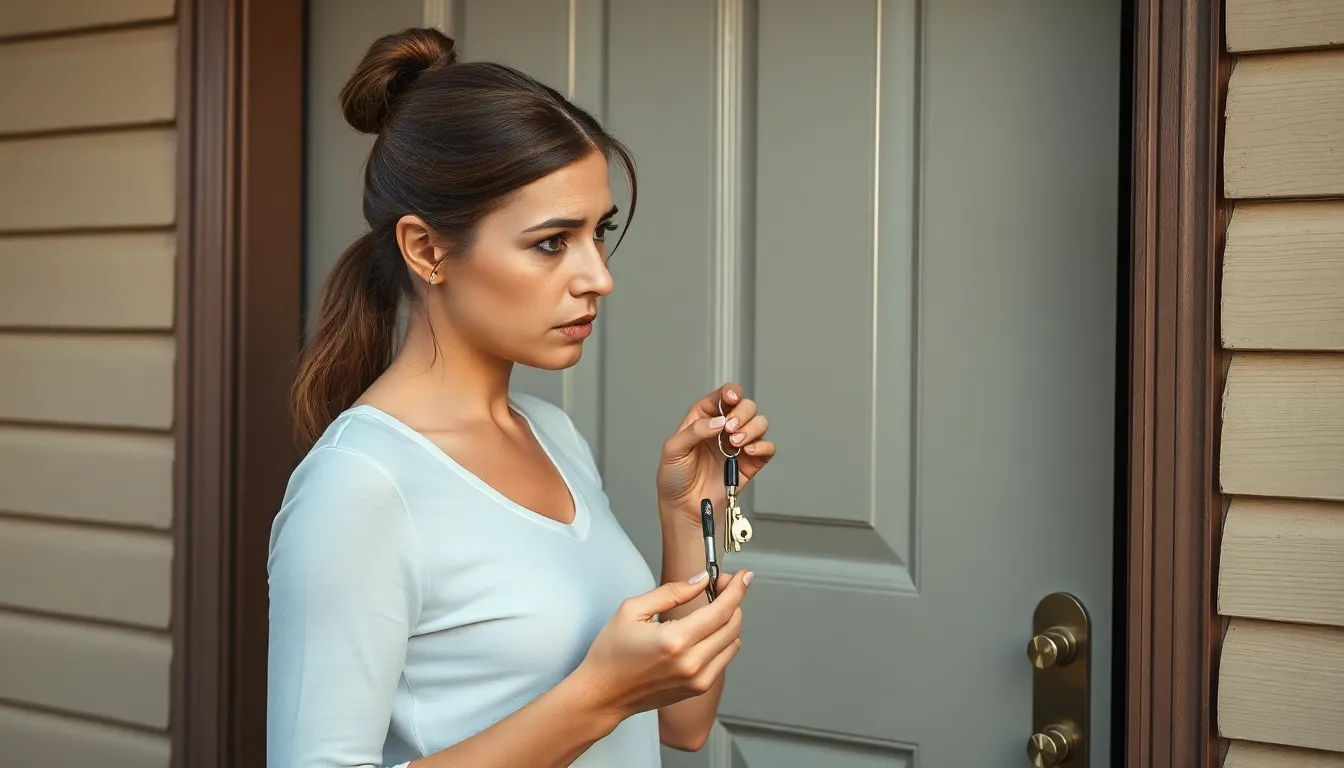Table of Contents
ToggleNavigating the world of renting as a student can feel like a high-stakes game of Monopoly, where the landlord holds all the power and you’re just trying to avoid landing on Boardwalk. But fear not! Understanding student tenant rights can turn that game in your favor, giving you the knowledge to negotiate leases like a pro and avoid any nasty surprises.
Understanding Student Tenant Rights
Recognizing student tenant rights is crucial for navigating the rental market. Students often face unique challenges, and understanding these rights fosters confidence and security.
Legal Framework Governing Tenants
Tenant rights are governed by local, state, and federal laws. The Fair Housing Act prohibits discrimination based on race, color, religion, sex, national origin, familial status, or disability. Lease agreements define specific obligations and responsibilities for both landlords and tenants. Students should familiarize themselves with local landlord-tenant laws to understand their rights regarding conditions, security deposits, and eviction processes. Resources like local legal aid organizations can provide guidance tailored to student needs.
Importance of Student Tenant Rights
Student tenant rights empower individuals to advocate for fair housing conditions. Knowledge of these rights helps prevent exploitation by landlords. Rights include the ability to report unsafe living conditions, request necessary repairs, and protest unfair eviction practices. Awareness enables students to negotiate lease terms confidently and seek legal recourse when necessary. Understanding rights contributes to healthier living environments and greater overall tenant satisfaction.
Common Issues Faced by Student Tenants
Students frequently encounter various challenges when renting properties, impacting their living situations and addressing their rights.
Lease Agreements and Terms
Lease agreements often include specific terms that may not favor student tenants. Agreements typically outline rent amounts, payment due dates, and any associated fees. Students must thoroughly review these documents before signing. Finding clauses regarding subletting, guest policies, or maintenance responsibilities can prove essential. If terms seem unclear, seeking clarification from landlords helps prevent misunderstandings later. Awareness of the lease duration also plays a critical role in avoiding unintentional violations. Understanding rights regarding lease termination can ensure students uphold their interests throughout their tenancy.
Security Deposits and Refunds
Security deposits usually require students to pay one month’s rent in advance. Many landlords outline deposit conditions in leases, specifying circumstances leading to deductions. Students often face challenges in retrieving their deposits after moving out. Timely requests for refunds should occur, supported by written documentation of the property’s condition prior to moving out. Some states mandate landlords to return deposits within specific timeframes after the lease ends. Knowledge of local regulations regarding deposit deductions and refunds can empower students to reclaim their funds. Being proactive and documenting any property issues during the tenancy minimizes disputes about the deposit at lease termination.
Tenant Rights in Specific Situations
Understanding tenant rights in specific situations is essential for students navigating the rental market. Students face unique challenges that can vary based on circumstances.
Rights During Evictions
During evictions, tenants retain specific rights. Landlords must provide proper notice before initiating eviction procedures. This notice period typically ranges from 3 to 30 days, depending on local laws. Tenants also have the right to contest the eviction in court if they believe it’s unjustified. In many jurisdictions, tenants may present their case and evidence before a judge. Moreover, no tenant should be forcibly removed without a court order, ensuring protection against illegal evictions.
Rights Regarding Repairs and Maintenance
Tenant rights regarding repairs and maintenance play a vital role in ensuring safe living conditions. Landlords are legally bound to provide habitable living environments, addressing issues such as plumbing, heating, and electrical problems. Students can report unaddressed maintenance requests, and landlords must respond promptly. Documentation of repair requests maintains a clear record, supporting tenants if disputes arise. Local laws often stipulate specific timeframes for repairs, with tenants entitled to seek remedies, including rent reductions, if landlords neglect their responsibilities.
Resources for Student Tenants
Numerous resources exist for student tenants, offering essential support and guidance.
Legal Aid and Advocacy Organizations
Legal aid organizations provide free or low-cost services to help students understand their tenant rights. Many regional nonprofit groups, like the Legal Services Corporation, specialize in housing issues. Local bar associations often have referral services to connect students with pro bono attorneys. They assist with legal disputes, including evictions and security deposit conflicts. Advocacy organizations, such as the National Low Income Housing Coalition, offer publications on housing rights and resources tailored for student renters. Knowledge about these legal resources empowers students to seek assistance when facing tenant challenges.
University Support Services
Many universities offer support services for student tenants. Campus housing offices generally provide resources that clarify local landlord-tenant laws. Some institutions have specific programs offering legal advice and lease review assistance. Counseling services often address housing issues, helping students navigate stressful situations. Additionally, student governments may run initiatives focused on tenant rights education. Engaging with these campus resources can lead to better-informed rental decisions and improved tenant experiences.
Conclusion
Understanding student tenant rights is essential for navigating the rental landscape. With the right knowledge students can confidently advocate for themselves and ensure their living conditions meet legal standards. By familiarizing themselves with local laws and utilizing available resources they can address issues like security deposits and eviction processes effectively.
It’s crucial for students to engage with their lease agreements and seek clarification on any unclear terms. Armed with this information they can avoid potential pitfalls and foster healthier living environments. Ultimately empowering themselves with knowledge leads to greater satisfaction and security in their rental experiences.








